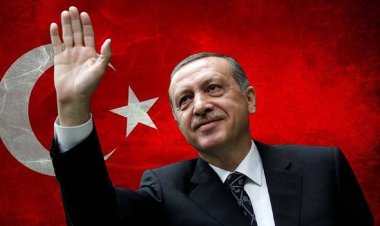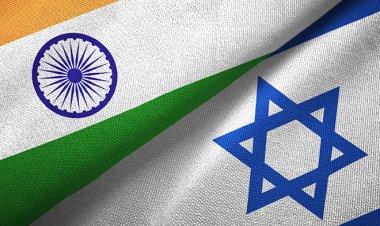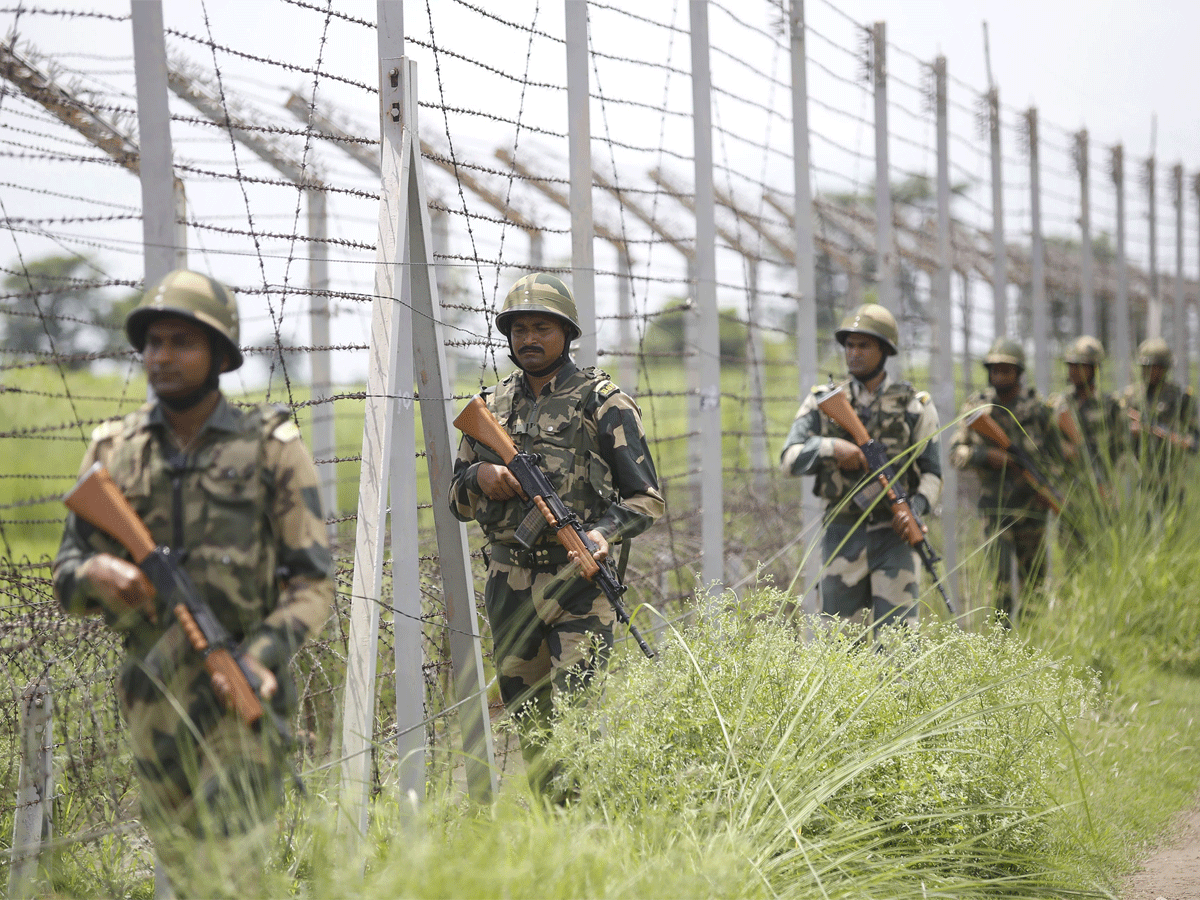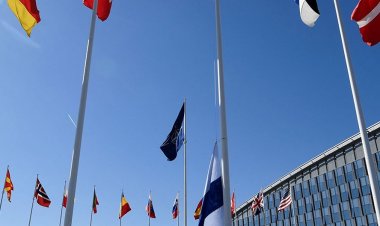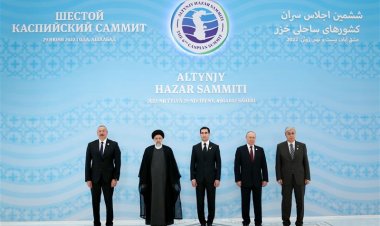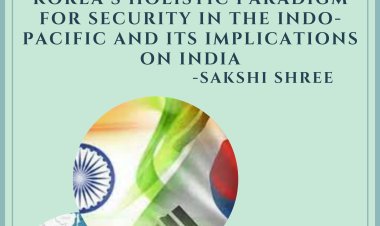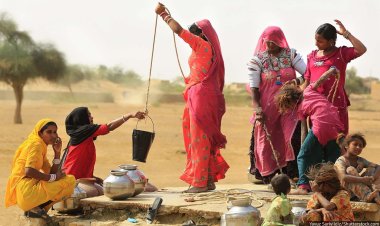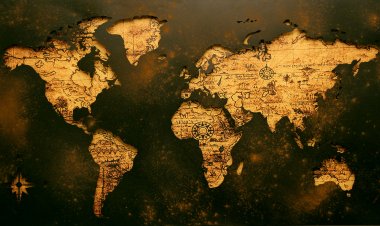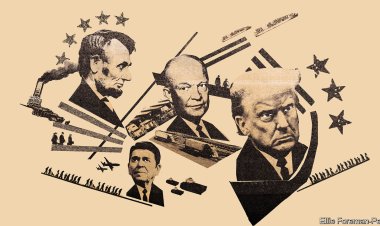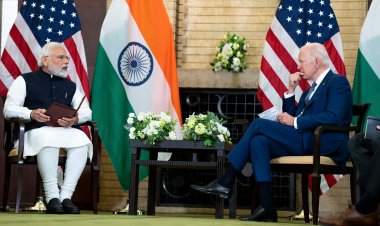Forum on China-Africa Cooperation: Backgrounder
Today, China-Africa relations are unmatched in history and ambitiously being carried forward by Xi Jinping. It is impressive and largely attributable to the fact that FOCAC has been a comprehensive arena for this Afro-Asian collaboration that provides a significant framework to foster a common growth plan in burgeoning globalism. However, disguised in economic growth, China's presence in Africa is political and monetary at the core.
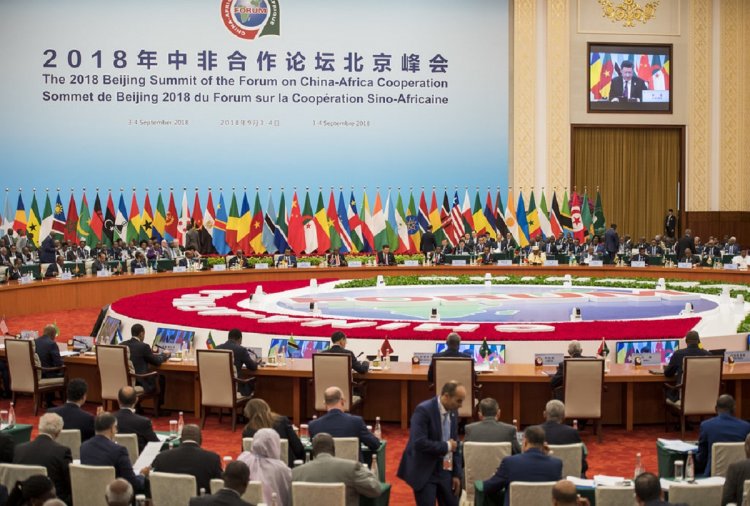
Commentary
By Saundarya Shrotriya
China and Africa are again set to showcase their exemplary ties, as the Forum on China-Africa Cooperation (FOCAC) will convene at the end of 2021 in Dakar, Senegal, marking 21 years of the multilateral platform. Under the Covid-19 circumstances, “FOCAC this year shall be critical and timely,” said Amani Abou-Zeid, a senior African Union (AU) commissioner. The commissioner hoped and called for stronger relations with China in infrastructure, energy, and transport. Established in October 2000 at the First Ministerial Conference in Beijing, FOCAC is a bilateral cooperation between China and all the countries in the African continent except Eswatini, focusing on political, economic, socio-cultural, and environmental consultations and dialogue. Since then, seven ministerial conferences and three triennial summits have been held alternatively in China & African countries.
Shaped on similar lines as Japan’s Tokyo International Conference on African Development (TICAD), a critical binder between China and the African continent and the model of south-south cooperation, FOCAC’s objectives are “equal consultation, enhancing understanding, expanding consensus, strengthening friendship and promoting cooperation.” The forum’s structure stands on principles of non-interference, mutual benefit, pragmatism, and independence.
Operationally, FOCAC promotes dialogues and decision-making at three levels; first, engagement between the Chinese and African Heads of States, second, the Senior Officials meetings, and third, where diplomats and host countries meet. However, the main player in the backstage that further strengthens to the forum is a Chinese Follow-up Committee, established in November 2000. The committee constitutes of ministers, ambassadors, government departments and banks, and even media from China, to conduct regular inspections on implementation, suggestion, and execution of policies. The powerful follow-up committee holds many briefing sessions through the Secretariat of the Follow-up Committee from Africa’s side.
Win-Win relations
Till the 1950s, Sino-African relations have had several limitations, going back from the Ming Dynasty in the18th century to the Kuomintang moment in the early 20th century. Mao Zedong’s quest for power in China amidst the African freedom struggle was a particularly low point in this relationship. However, after the 1960s a pattern started to form, where China continually offered political and economic assistance to Africa. China's engagement with Africa increased significantly including 800 projects across the African continent in agriculture, energy, transport, and technology between 1956-1966. Other major projects included the Tanzania-Zambia railway (which the west denied to build) and China completed other 338 projects by 1987. Numerous visits also took place by both the Heads of State from African countries to China and Chairman Li Xiannian and Premier Zhao Ziyang to Africa between the 1980s-1990s. In return, Africa stood by China not only in the United Nations but also on the Tiananmen incident and on Taiwan & Tibet issues.
The development of FOCAC into a well-structured and well-functioned multilateral dialogue owes to the history of the China-Africa relationship since the 1990s which witnessed mutual trust even in hardships (‘The Lost Decade’ for Africa and Anti-China moment by the west). But in the 21st century, China’s new game in Africa focuses predominantly on its monetary interests, particularly China's craving to get African raw materials and also to create for itself a new consumer market for exports. It started with trade and then took the form of the Chinese ‘go out and buy’ policy in Africa. Chinese policymakers decided to diversify China’s energy and resource reserves, for which Africa proved to be a faithful candidate. By 2009, China had surpassed the United States as Africa's biggest trading accomplice.
Today, China-Africa relations are unmatched in history and ambitiously being carried forward by Xi Jinping. It is impressive and largely attributable to the fact, from past summits, that FOCAC has been a comprehensive arena for this Afro-Asian collaboration that provides a significant framework to foster a common growth plan in burgeoning globalism. “Shared Future through Win-Win Cooperation”, the last FOCAC summit in Beijing 2018, put forward eight areas of cooperation⸺ industrial promotion, infrastructure connectivity, trade facilitation, green development, capacity building, health, people-to-people exchanges, and peace and security⸺ that are more or less same in past summits.
According to data from China-Africa Research Initiative (CARI), the China-Africa trade value in 2019 was $192 bn and $185bn in 2018. Even though the COVID-19 pandemic severely affected the global market, China remained Africa’s largest trading partner for the 12th year in a row. For infrastructural development, African Union (AU) is one of the successful examples. AU indulged in FOCAC in October 2011 and the very next year China reached the hearts of African leaders, by building AU Conference and Office Complex free of charge within three months. For financial commitments, in 2018 a total of $60bn of financial support was pledged to Africa that included interest-free & concessional loans, credit loans, development projects, import from Africa to China, and $10bn for Chinese companies to invest. In the 2019-2021 FOCAC Action-Plan, China decided to exempt interest-free debts that matured by the end of 2018; and same for the year 2020, a total of $113.8million debt was canceled for 15 African countries.
Even if a comparison is to be drawn between the last conferences and summits, China has tried to maintain consistency with its policies in Africa. It largely avoids to change or impose new plans suddenly, rather it is a gradual process of research and development with strict follow-ups. FOCAC has been instrumental to bring transformation to the African continent in many ways, which the west has failed to do so. Chinese multinational companies backed by the Chinese government and Chinese ideology promoting think tanks in Africa are the vanguard for Beijing’s diplomatic engagement with African countries.
There are some undeniable reasons that make China a favored accomplice for Africa. For Africans, China has four significant attractions; soft loans and access to capital, quick delivery of goods and services at a decent rate, peacekeeping funds, and an alternative developmental model. Therefore, it is clear that Africa has a lot to gain in this partnership, but what is behind China’s dedication towards the continent?
Xi Jinping’s FOCAC speech answers that the above question. His speech surrounds mostly on China’s big heart towards welcoming Africa and their strong relationship. However, aside from XI’s perspective, we might want to dig deeper. Disguised in economic growth, China’s presence in Africa is political at the core. Firstly, China sees Africa as a center stage to expand its geopolitical interests, which shall certainly provide it an upper hand over the US and also maybe the UN, given the previous and recent violations of UN rules by China. Having gained such strategic depth in the African continent, Beijing projects itself to be a “messiah”. Secondly, this so-called adoption of Africa is another instrument to clean its image on the international platform. It is aware of narratives that flow in the west regarding this relationship. ‘Five No’ approach that Xi talked about is a “Dāngxīn” or “be careful”, message for Chinese organizations operating in the continent. Thirdly, China seizes to rebrand Africa through Xi’s signature policy, the Belt and Road Initiative. According to China’s official data, BRI has extended to over 40 African countries, plus nine, and the AU has also signed the MOUs. Having covered almost 90 percent of the continent, China undoubtedly gains easy access to the Indo-Pacific region for its geopolitical interests. This win-win relationship looks symmetrical in geopolitical gains but asymmetrical in arenas.
Summing up
Over the past 21 years, FOCAC has been evolving and will continue to do so. The firm support, strength, and solidarity between China-Africa partnership is an apogee of the south-south cooperation. This is evident from when more African presidents attended the last FOCAC summit than the 73rd session of the United Nations General Assembly. Now, for the 2021 FOCAC, we prepare to witness advanced focus on the health sector, as a consequence of the COVID-19 pandemic. The vaccine initiatives and people-to-people exchange initiatives are expected to enhance predominantly among health professionals, and through this, China shall seek to protect its reputation and shed blame for the outbreak. The financial and infrastructural sectors will continue to be on the agenda. We might even witness increased activities to enhance Africa’s maritime industry and security through China’s Maritime Silk Route in the future. The forthcoming summit in Senegal will endeavor to increase strategic agreement between China and Africa to keep up the friendship and consolidate the political cornerstone for their unity and cooperation.
.
Saundarya Shrotriya is a Psychology Majors and a Postgraduate in Criminology. She is currently pursuing a Diploma in International Affairs and Diplomacy from the Indian Institute of Governance and Leadership. She is a Research Intern at Usanas Foundation.
Disclaimer: This paper is the authors' individual scholastic contribution and does not necessarily reflect the organisation’s viewpoint.

